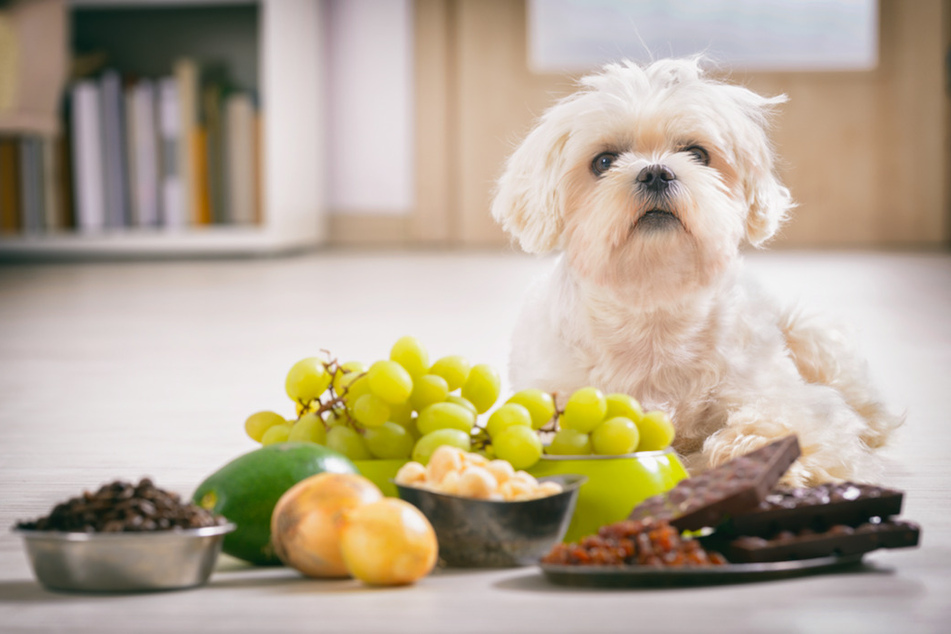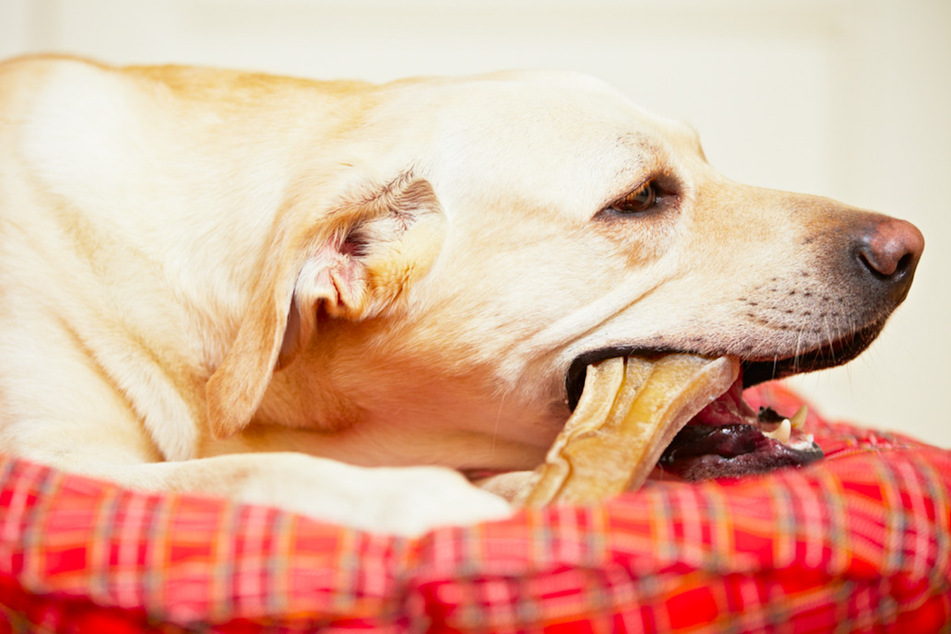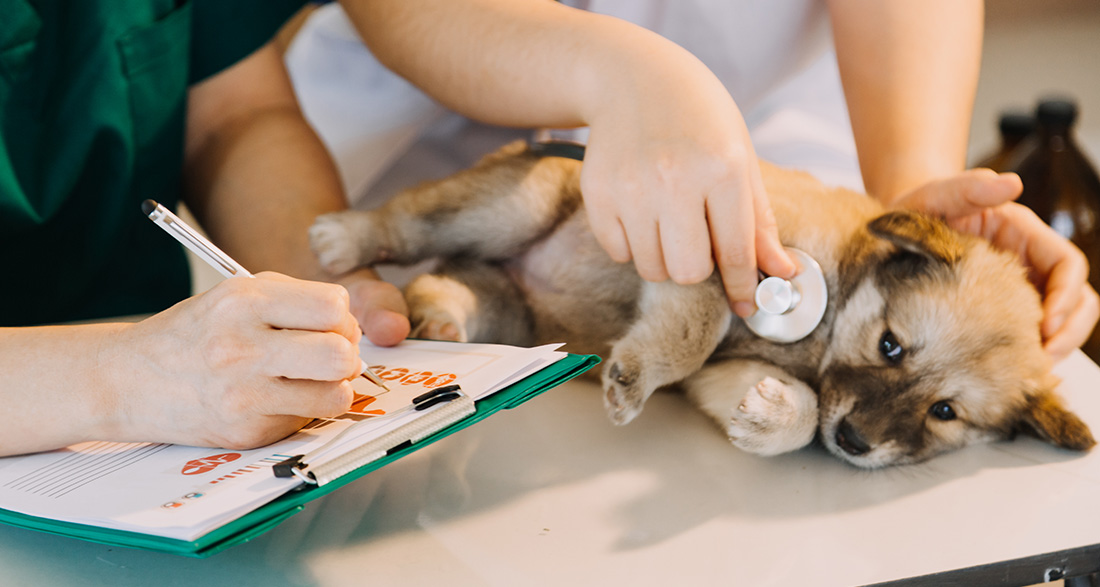Every dog owner has poison at home—and may not even know it. Because many foods that are part of our daily lives can have fatal consequences for dogs.
Sharing some food with your dog while cooking? Not always a good idea!
Since the metabolism of animals differs from ours, even seemingly “healthy” foods like vegetables and fruits can have serious consequences for dogs.
The range of intolerances ranges from chocolate to grapes: often, a “small dose” of the food is enough to cause health problems in pets.
Every owner should therefore address this issue and learn what a dog can and cannot eat.
Here, we have summarized foods that your dog should not eat.
However, this list in this dog guide is not exhaustive. Always consult a veterinarian if you are unsure before feeding your pet something new.
Toxic Foods for Dogs: 1. Chocolate
The ingredient theobromine in chocolate is processed very slowly by dogs. Depending on the amount, chocolate is toxic for animals and can lead to symptoms such as vomiting, diarrhea, hyperactivity, increased or irregular heart rate, seizures, and altered consciousness.
The darker the chocolate, the more toxic it is for dogs. White chocolate is not harmful as it only contains cocoa butter and no cocoa powder. Pure powder is the most dangerous.
Toxic Foods for Dogs: 2. Avocado
Avocados contain the substance persin, which is highly toxic to dogs. The toxin can cause fatal muscle damage in many pets. The exact dose that is crucial is disputed. The danger mainly comes from the avocado’s pit.
If a dog swallows it while playing, it can lead to intestinal obstruction.
Toxic Foods for Dogs: 3. Onions and Garlic
Whether raw, dried, or cooked, onions and garlic can have serious effects on dogs. The sulfur compounds attack red blood cells and destroy them.
Just one onion is enough to be dangerous for a 15-kilogram animal, causing diarrhea, vomiting, and anemia.
Toxic Foods for Dogs: 4. Grapes and Raisins
Grapes are pure poison for dogs. Just 10 grapes can cause acute kidney failure in a five-kilogram dog. Even one grape is enough to induce vomiting and diarrhea.
The same applies to raisins, which are nothing more than dried grapes: never feed them to the dog.
Toxic Foods for Dogs: 5. Walnuts and Macadamia Nuts
In general, dog owners should stay away from nuts. Walnuts and macadamia nuts are particularly rich in fat and also contain a lot of phosphorus.
This combination is toxic to dogs and causes weakness, vomiting, and fever.

Toxic Foods for Dogs: 6. Stone Fruit and Fruit Pits
Hydrocyanic acid contained in fruit pits can be released when chewed. Poisoning in dogs manifests as diarrhea, seizures, and fever.
Moreover, the pits of stone fruit like apricots and plums are often sharp-edged and can cause injuries in the mouth and intestines.
Toxic Foods for Dogs: 7. Milk
Like many people, adult dogs are often lactose intolerant. They lack the necessary enzyme lactase to digest lactose, so milk can cause diarrhea in dogs. The tolerance levels vary depending on the animal.
Products like yogurt, cottage cheese, and buttermilk, on the other hand, are not problematic as most lactose has been converted to lactic acid through fermentation.
In summary: milk and cream should not be fed, but yogurt and cottage cheese can be part of the animals’ diet.
Toxic Foods for Dogs: 8. Coffee and Black Tea
Similar to chocolate, coffee and black tea contain theobromine. The consequences of consumption can be deadly.
Moreover, the caffeine in these beverages can lead to rapid heartbeat, diarrhea, and high blood pressure in dogs.
Toxic Foods for Dogs: 9. Bones
It may sound strange, but bones should not be fed to dogs. While they are not toxic, the risk of splinters exposes the animal to an increased risk of injury.
Dogs love to chew on bones, but injuries to the esophagus and stomach can be severe. In addition, large pieces can lead to a fatal gastrointestinal obstruction.

Toxic Foods for Dogs: 10. Alcohol
It’s less surprising that dogs cannot tolerate alcohol, and undoubtedly, intentionally getting one drunk is not amusing.
However, if a dog accidentally licks from an unguarded wine glass, your alarm bells should ring.
Even small amounts can lead to severe poisoning in animals. Coordination disorders, followed by vomiting, shortness of breath, seizures, and even death are possible.
Only Cooked for Your Dog: Potatoes and Others
Some foods should only be given to your dog in cooked form. These include pork, potatoes, eggs, soy, cabbage, and legumes.
If you are unsure about the composition of the food, ask your veterinarian for advice. If your dog shows symptoms of poisoning, do not hesitate to call the emergency veterinarian.


